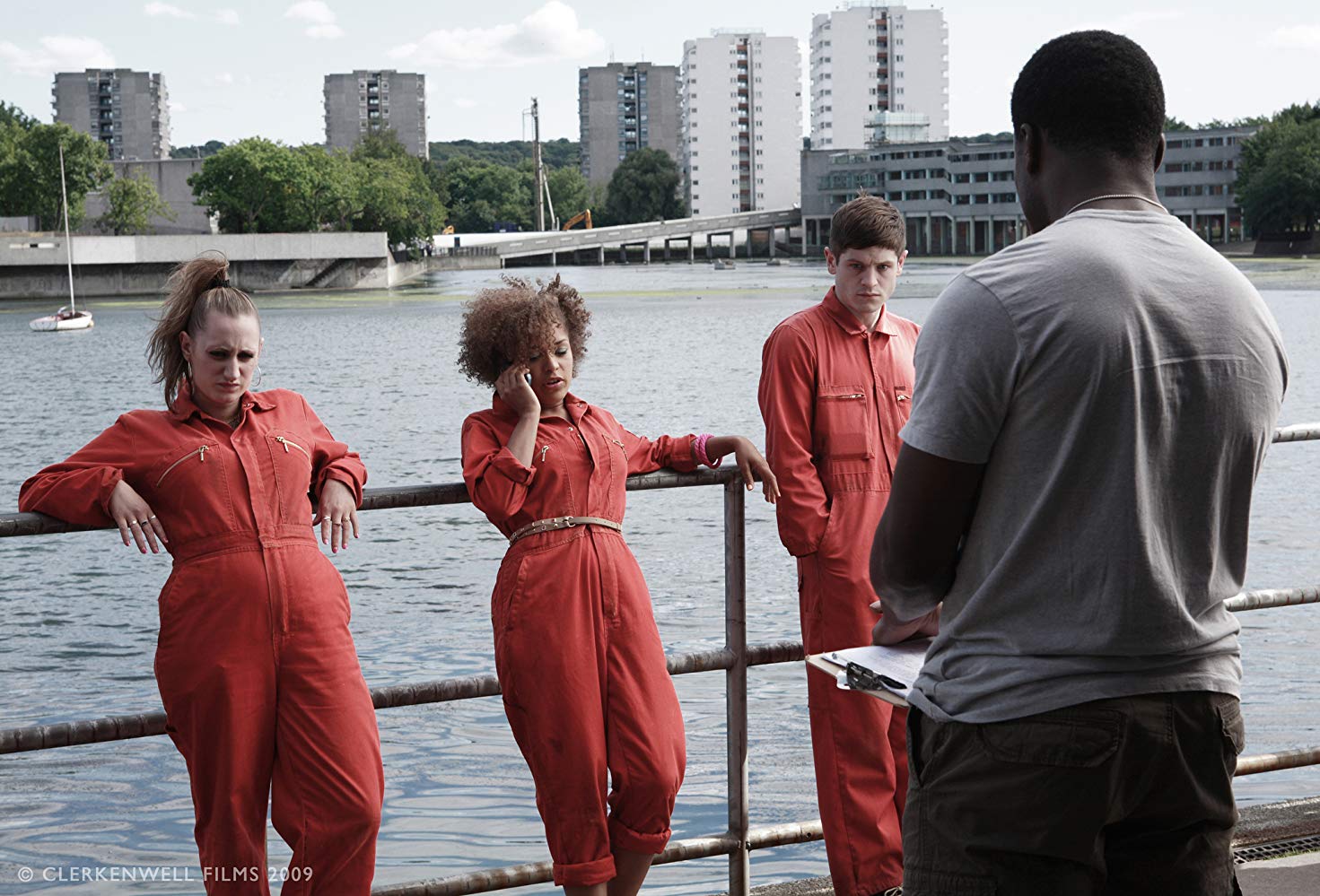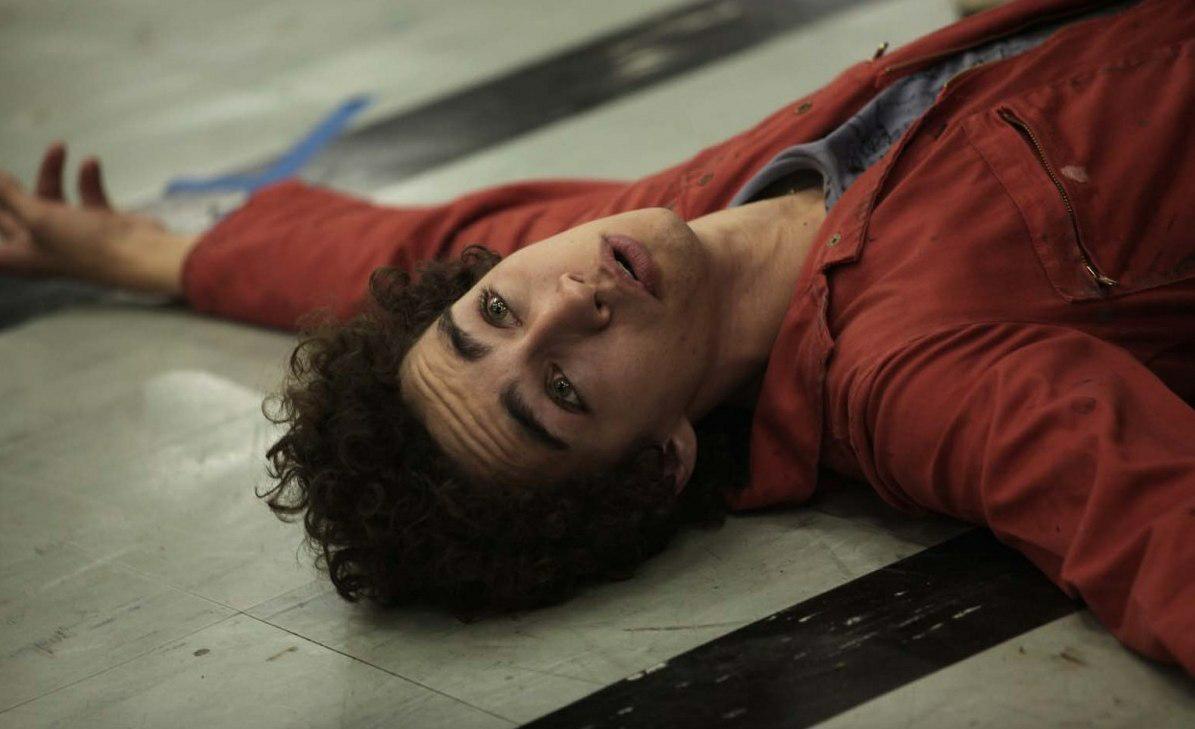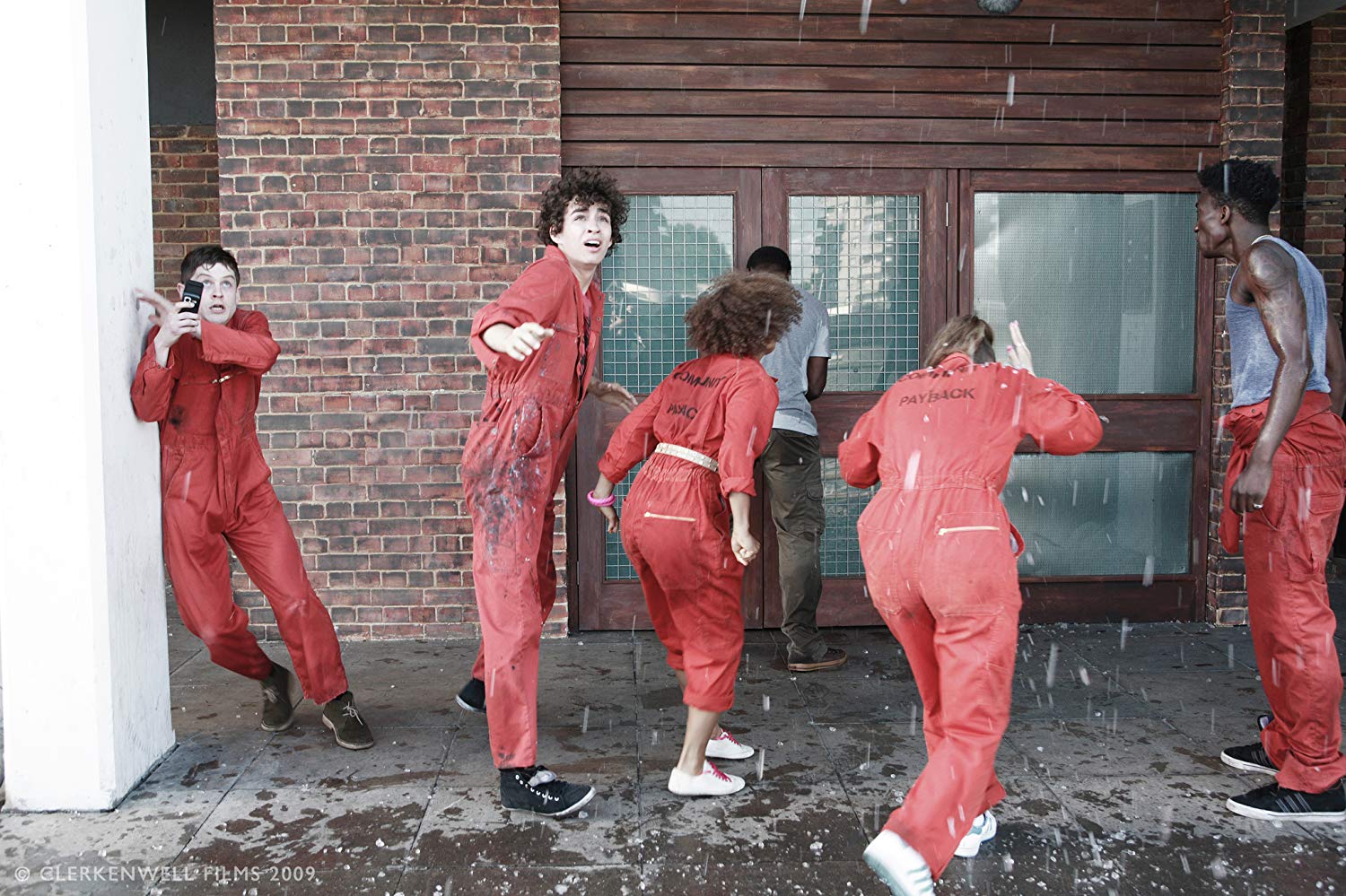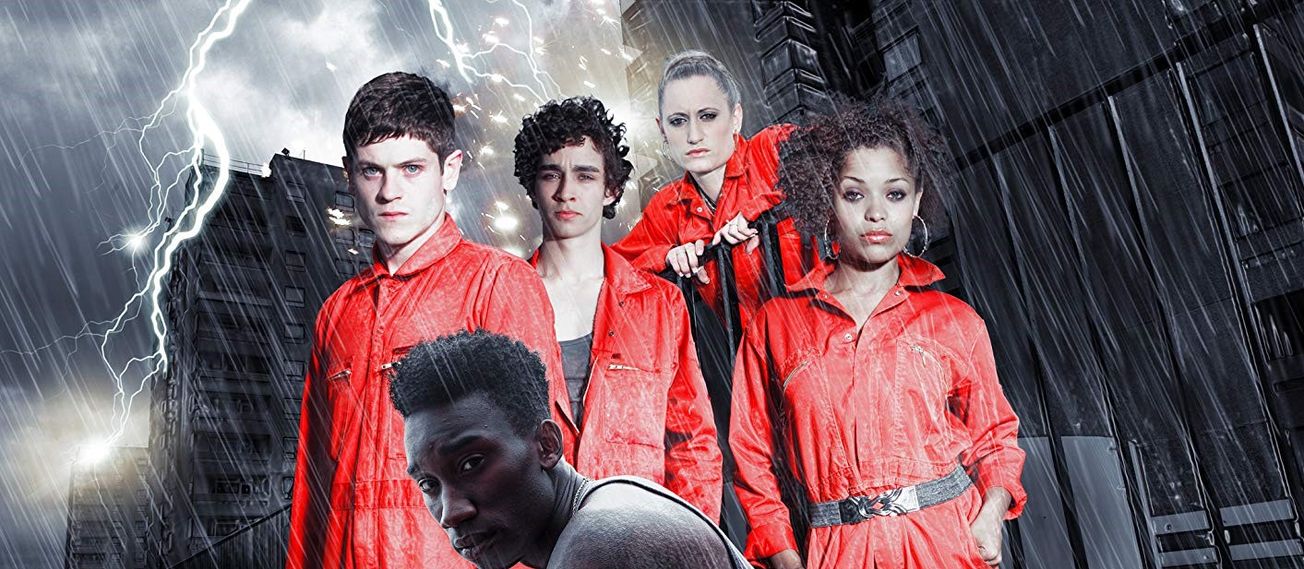By Patrick Sullivan, Co-Editor-in-Chief
A decade has passed since the show first aired, but the early seasons remain one of the most outrageously funny and popular series contemporary British television has seen.
Earlier in 2019, Amazon Prime had one of its greatest original successes. The Boys (2019-) is a bombastic, sweary, graphic adaptation of the comic book series featuring superheroes gone naughty. Streaming audiences and critics alike have lauded the first season as the antidote to the Marvel overload, a playful take on a saturated genre. Back in November 2009, however, a humble British production burst onto our TVs with similar gusto at a time when only Iron Man (2008) and The Incredible Hulk (2008) had been released.

Misfits (2009-2013) follows five juvenile offenders who, in a freak storm, are bestowed with an array of weird and wonderful superpowers. It’s fair to say their new abilities, and the much-affected world, shake up the tedious community service they are consigned to for their criminal offences.
While using a tried and tested superhero set-up, the formula is bent out of shape by the assortment of wild and unruly characters, as well as then-unseen gimmicks such as the capacity to ‘trade’ powers. What made it so loved by British and international audiences, however, was the youthful zest it had while pushing the boundaries of TV subject matter.
| The Umbrella Academy proves a storming show and its soundtrack is one of the best on Netflix
Firstly, the language is utterly vile. Genitalia and wider nudity also appear all over the shop, and not unrealistic cinematic voyeurism, but, for example, the unflattering, sudden appearance of ‘dick and balls’ with ensuing commentary about ‘cock size’ outlast any remaining dignity. The word ‘clunge’ and other skin-crawling phonetics litter the show along with similarly crude impressions and renditions of sex.
I really miss life around the time Misfits was on E4. That was such a joyful time to be alive we was living in a British teenage renaissance: Misfits, Skins, Being Human, Primeval, Shameless, Inbetweeners.
— D A L (@THEHOODFLUENCER) December 4, 2019
What a great time🥺
I, and the rest of my overexposed, internet junky generation of teenagers, found it all outrageously entertaining, like a forbidden fruit gone rogue in the mainstream supermarkets, and it settled into a new home of limitless, raunchy British humour on Channel Four’s sister channel, E4. Along with The Inbetweeners (2008-2010), Beaver Falls (2011-2012), Skins (2007-13) and Jimmy Carr specials, the channel became a stream of comedy hits a decade ago and was the reliable go-to before Netflix and Amazon Prime developed their foothold on entertainment for young people.
Looking back on what made Misfits so successful, it mostly comes down to the new style of humour, frowned upon by most above the age of 30, and the homegrown acting talent of the show’s original cast. Robert Sheehan, here the unequivocal star and main perpetrator of vulgar sketches as Nathan, left after two seasons for Hollywood and he has rarely been given the R-rated material he thrives on since, despite a moderately successful career. His character, while seemingly powerless in the first season, is given such an influential role that the three seasons after his departure are underwhelming in comparison.

Sheehan’s snappy rapport with Lauren Socha, playing mindreader Kelly, and hilariously distasteful torment of Iwan Rheon’s Simon is unrivalled later on, as the rest of the original cast continue the series for at least one more season. This is despite the efforts of similar talent Joseph Gilgun, also known for This Is England (2006) and Preacher (2016-19), who replaces him as the leading star in a new role.
The Sheehan shadow equally detracts from the quality performances by Nathan Stewart-Jarrett and Antonia Thomas, whose characters, Curtis and Alisha, are subjected to greater emotional arcs across further seasons as they grapple with the effects of their powers on their lives. Still, to this very day, it is clips of Sheehan as Nathan Young doing the viral rounds on Facebook, whether his iconic use of blasphemy, ‘Jesus!’, physical comedy routines, or when he describes so vividly such concepts as the ‘tingling sensation in his anus’.
Discover a time when British comedy really did not give a shit what license-paying boomers thought
Despite the well-crafted scripts of the first two seasons and the trendiness of the featured superpowers, it is the isolated delivery of its ill-natured humour and general anti-heroism which meant its impact has been long lasting through the internet age. It is the same with The Inbetweeners and will be the same for The Boys: comedy is remembered for the peak of its ability to make us repeatedly laugh, as achieved by any means necessary.

Series creator and writer, Howard Overman, has had very little success other than Misfits, and must admit he had the great fortune of working with five immensely talented actors - six including Gilgun - as well as a timely original premise flipping the superhero genre on its head. The show, while clever in turns, lacks the narrative drive of The Boys and clearly never planned to last the five seasons it did, especially without Sheehan at the fore.
| How British humour has (or hasn’t) changed since the 1960s
That being said, Misfits and the E4 generation of the late noughties proved to be an unrivalled boom in contemporary British comedy: matching the popular American style of humour favoured by younger, more internationally aware audiences. If you are a fan of The Boys, or even wish Brooklyn 99 (2013-) was a bit racier, try the more homebred trendsetter from a decade ago and discover a time when British comedy really did not give a shit what license-paying boomers thought.
Featured: IMDb / Mark Johnson
What do you think made Misfits such an icon of its time?








